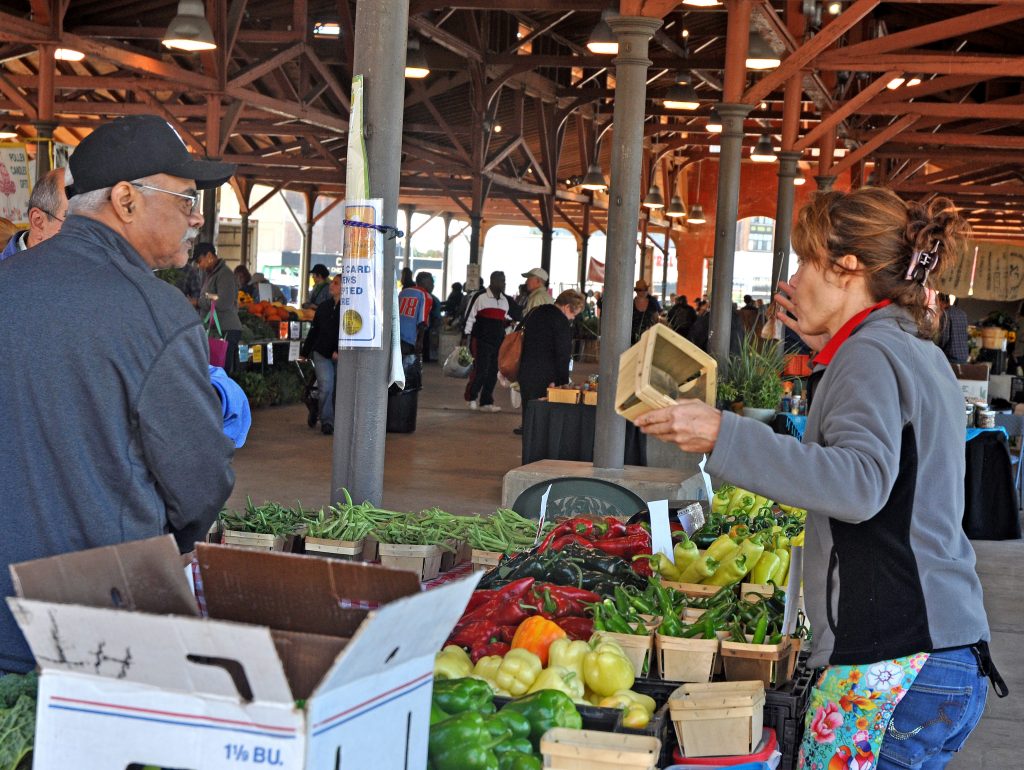Detroit Today: A new way to think about food security in Detroit
While access to fresh, healthy food remains a serious issue for many Detroiters, there are several efforts underway through urban farming, community gardens and local co-ops to stem food insecurity in the city.

There has been a significant increase in Detroit-based growers at Eastern Market since 2020, according to the Detroit Food Policy Council's latest Food Metrics Report.
Food insecurity continues to be a problem in Detroit, with roughly 69% of households identified as food insecure in 2021, according to the Detroit Food Policy Council’s latest Food Metrics Report.
The report, released in 2020 and updated with data from 2021, found that Detroit lost 10 grocery stores since 2017. While the city gained two more grocery stores in 2021, two others have since closed, leaving a total of 64 “full-line” grocery stores in the 142-square-mile city.
Local efforts in urban agriculture aim to stem those statistics, however, with the advocacy group’s report showing significant growth in local community gardens and Detroit-based growers at Eastern Market. Additionally, the city recently named its first urban agriculture director to help urban farmers buy land and obtain permits in the city.
So what does all this mean for the broad state of food security in Detroit? Malik Yakini, co-founder and executive director of the Detroit Black Community Food Security Network, and Winona Bynum, executive director at the Detroit Food Policy Council, joined Detroit Today on Monday to discuss what’s behind the falling number of grocery stores and the efforts to reverse the trend.
Subscribe to Detroit Today on Apple Podcasts, Spotify, Google Podcasts, NPR.org or wherever you get your podcasts.
Guests:
Malik Yakini is co-founder and executive director of the Detroit Black Community Food Security Network. He is also a board member of the Detroit Peoples’ Food Co-op, a community-owned grocery being built in Detroit. He says while city government is starting to see the value in the urban agriculture movement, it would not have happened without grassroots efforts of community organizations.
“I want to be clear that the leadership of this has started on the grassroots level,” said Yakini. “And to the extent that we have politicians supporting it, is because of the long-term relentless work of people on the ground.”
Winona Bynum is the executive director at the Detroit Food Policy Council. She says increasing access to groceries stores within the city is important for food sovereignty and security.
“It’s about $500 million every year that goes outside of the city on food,” said Bynum. “And so if we could capture that, that means jobs. That means food sovereignty and food security for the city.”
Listen to Detroit Today with host Stephen Henderson weekdays from 9-10 a.m. ET on 101.9 WDET and streaming on-demand.
Trusted, accurate, up-to-date.
WDET strives to make our journalism accessible to everyone. As a public media institution, we maintain our journalistic integrity through independent support from readers like you. If you value WDET as your source of news, music and conversation, please make a gift today.

